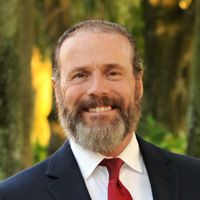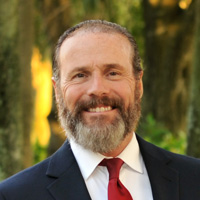Maximize Your Social Security Benefits With Tailored Strategies
With hundreds of filing possibilities, it pays to carefully weigh all your options and get creative about when and how to claim benefits so you can get the most out of your retirement.


Profit and prosper with the best of Kiplinger's advice on investing, taxes, retirement, personal finance and much more. Delivered daily. Enter your email in the box and click Sign Me Up.
You are now subscribed
Your newsletter sign-up was successful
Want to add more newsletters?

Delivered daily
Kiplinger Today
Profit and prosper with the best of Kiplinger's advice on investing, taxes, retirement, personal finance and much more delivered daily. Smart money moves start here.

Sent five days a week
Kiplinger A Step Ahead
Get practical help to make better financial decisions in your everyday life, from spending to savings on top deals.

Delivered daily
Kiplinger Closing Bell
Get today's biggest financial and investing headlines delivered to your inbox every day the U.S. stock market is open.

Sent twice a week
Kiplinger Adviser Intel
Financial pros across the country share best practices and fresh tactics to preserve and grow your wealth.

Delivered weekly
Kiplinger Tax Tips
Trim your federal and state tax bills with practical tax-planning and tax-cutting strategies.

Sent twice a week
Kiplinger Retirement Tips
Your twice-a-week guide to planning and enjoying a financially secure and richly rewarding retirement

Sent bimonthly.
Kiplinger Adviser Angle
Insights for advisers, wealth managers and other financial professionals.

Sent twice a week
Kiplinger Investing Weekly
Your twice-a-week roundup of promising stocks, funds, companies and industries you should consider, ones you should avoid, and why.

Sent weekly for six weeks
Kiplinger Invest for Retirement
Your step-by-step six-part series on how to invest for retirement, from devising a successful strategy to exactly which investments to choose.
In survey after survey, retirees say their No. 1 worry is that they’ll run out of money.
Recently, I polled my radio show listeners in the Palm Beach, Fla., area, and 86% said it’s their biggest financial concern.
The transition over the past few decades from traditional pensions to defined contribution plans has moved the responsibility of retirement saving and investing from employers to individuals. And it’s been a challenge, to say the least.
From just $107.88 $24.99 for Kiplinger Personal Finance
Become a smarter, better informed investor. Subscribe from just $107.88 $24.99, plus get up to 4 Special Issues

Sign up for Kiplinger’s Free Newsletters
Profit and prosper with the best of expert advice on investing, taxes, retirement, personal finance and more - straight to your e-mail.
Profit and prosper with the best of expert advice - straight to your e-mail.
That’s why now, more than ever, it’s important for retirees to maximize their Social Security benefits. It’s a guaranteed income stream that you’ve earned through your years of hard work.
Social Security is generally considered to be free from risk, as federal legislation known as the Social Security Guarantee Initiative Legislation, adopted in March 1999, establishes that anything that has to be done to keep Social Security will be done for this generation of Americans.
There are hundreds of Social Security claiming strategies
But you have to know how and when to take Social Security to maximize your benefits. Most people are amazed to learn there are more than 500 different claiming strategies and more than 2,000 governing rules. There are strategies for:
- married couples
- divorced couples
- domestic partnerships
- widows and widowers
Some are simple and straightforward, and some can be complicated and include multiple steps.
While the Bipartisan Budget Act of 2015 restricted the use of some Social Security claiming techniques (including the “file and suspend” method that was so popular with traditional married couples, especially when the husband made substantially more income than his wife), I tell my clients it’s like the old Alexander Graham Bell quote: “When one door closes, another opens.”
There are still many opportunities available to enhance your retirement security. But it helps to work with a financial professional who concentrates on creating income in retirement to help find a strategy — or combination of strategies — that will work for you.
How filing for benefits early paid off for one of my clients
For example, I have a client named John who was downsized from an executive position when he was 60 years old. Try as he might, he couldn’t find a job with a similar level of compensation, and he told me he was considering filing for Social Security as soon as he turned 62.
I’m sure he expected a lecture. Instead, I asked him, “Have you thought about filing at 60?”
I remembered that John, who was divorced, had been married for 17 years to a highly compensated dentist. She died of breast cancer and had never filed for Social Security, but he could file on her record as a surviving divorced spouse because their marriage lasted more than 10 years. Then he could switch to his own retirement benefit sometime after he turned 62.
A creative way to manage the Social Security earnings test
The only hiccup was that John would be limited in how much he could earn in the job he’d gotten in a cabinet-making shop. If he went over the annual limit (for 2017, that limit is $16,920), the government would deduct $1 for every $2 he was over.
So John negotiated with his new employer to separate his regular compensation ($300 a week for services he performed in the store) from the money he made in sales (for which he set up an S corporation, so it was considered the profit from his own business, not regular wages).
Now John’s own benefits are still growing, but his ex-wife’s benefits are helping him maintain a comfortable lifestyle.
It all comes down to your unique set of circumstances
Of course, John didn’t, and still doesn’t, know the 500-plus strategies for taking Social Security benefits – and frankly, neither do I.
But I do know that pretty much every single person I see has a unique situation that requires considerable research and coordination to maximize what he or she has coming. It’s all part of the comprehensive planning that a financial professional could be and should be offering you.
Retirement planning isn’t just about stocks and bonds and how much income you can derive from your portfolio. It’s about cash flow – and that means all your potential income streams.
There’s a misconception out there that Social Security is just for people who don’t have any other money to live on in retirement. But that’s not true. It’s the solid foundation for many retirees’ financial plans. According to the Social Security Administration, it’s the major source of income for most retirees.
Social Security is something every worker has earned – and everyone deserves to make the most of it that they can.
Kim Franke-Folstad contributed to this article.
Disclosure: John Convery is an Investment Advisor Representative of Retirement Wealth Advisors Inc. (RWA), an SEC Registered Investment Advisor. The Educated Wealth Center, RWA and Kiplinger are not affiliated.
Profit and prosper with the best of Kiplinger's advice on investing, taxes, retirement, personal finance and much more. Delivered daily. Enter your email in the box and click Sign Me Up.

John Convery is the president and founder of The Educated Wealth Center, LLC. He has passed the series 65 securities exam and is a licensed insurance producer.
-
 How Much It Costs to Host a Super Bowl Party in 2026
How Much It Costs to Host a Super Bowl Party in 2026Hosting a Super Bowl party in 2026 could cost you. Here's a breakdown of food, drink and entertainment costs — plus ways to save.
-
 3 Reasons to Use a 5-Year CD As You Approach Retirement
3 Reasons to Use a 5-Year CD As You Approach RetirementA five-year CD can help you reach other milestones as you approach retirement.
-
 Your Adult Kids Are Doing Fine. Is It Time To Spend Some of Their Inheritance?
Your Adult Kids Are Doing Fine. Is It Time To Spend Some of Their Inheritance?If your kids are successful, do they need an inheritance? Ask yourself these four questions before passing down another dollar.
-
 The 4 Estate Planning Documents Every High-Net-Worth Family Needs (Not Just a Will)
The 4 Estate Planning Documents Every High-Net-Worth Family Needs (Not Just a Will)The key to successful estate planning for HNW families isn't just drafting these four documents, but ensuring they're current and immediately accessible.
-
 Love and Legacy: What Couples Rarely Talk About (But Should)
Love and Legacy: What Couples Rarely Talk About (But Should)Couples who talk openly about finances, including estate planning, are more likely to head into retirement joyfully. How can you get the conversation going?
-
 How to Add a Pet Trust to Your Estate Plan: Don't Leave Your Best Friend to Chance
How to Add a Pet Trust to Your Estate Plan: Don't Leave Your Best Friend to ChanceAdding a pet trust to your estate plan can ensure your pets are properly looked after when you're no longer able to care for them. This is how to go about it.
-
 Want to Avoid Leaving Chaos in Your Wake? Don't Leave Behind an Outdated Estate Plan
Want to Avoid Leaving Chaos in Your Wake? Don't Leave Behind an Outdated Estate PlanAn outdated or incomplete estate plan could cause confusion for those handling your affairs at a difficult time. This guide highlights what to update and when.
-
 I'm a Financial Adviser: This Is Why I Became an Advocate for Fee-Only Financial Advice
I'm a Financial Adviser: This Is Why I Became an Advocate for Fee-Only Financial AdviceCan financial advisers who earn commissions on product sales give clients the best advice? For one professional, changing track was the clear choice.
-
 65 or Older? Cut Your Tax Bill Before the Clock Runs Out
65 or Older? Cut Your Tax Bill Before the Clock Runs OutThanks to the OBBBA, you may be able to trim your tax bill by as much as $14,000. But you'll need to act soon, as not all of the provisions are permanent.
-
 I'm a Financial Adviser: This Is the $300,000 Social Security Decision Many People Get Wrong
I'm a Financial Adviser: This Is the $300,000 Social Security Decision Many People Get WrongDeciding when to claim Social Security is a complex, high-stakes decision that shouldn't be based on fear or simple break-even math.
-
 4 Ways Washington Could Put Your Retirement at Risk (and How to Prepare)
4 Ways Washington Could Put Your Retirement at Risk (and How to Prepare)Legislative changes, such as shifting tax brackets or altering retirement account rules, could affect your nest egg, so it'd be prudent to prepare. Here's how.